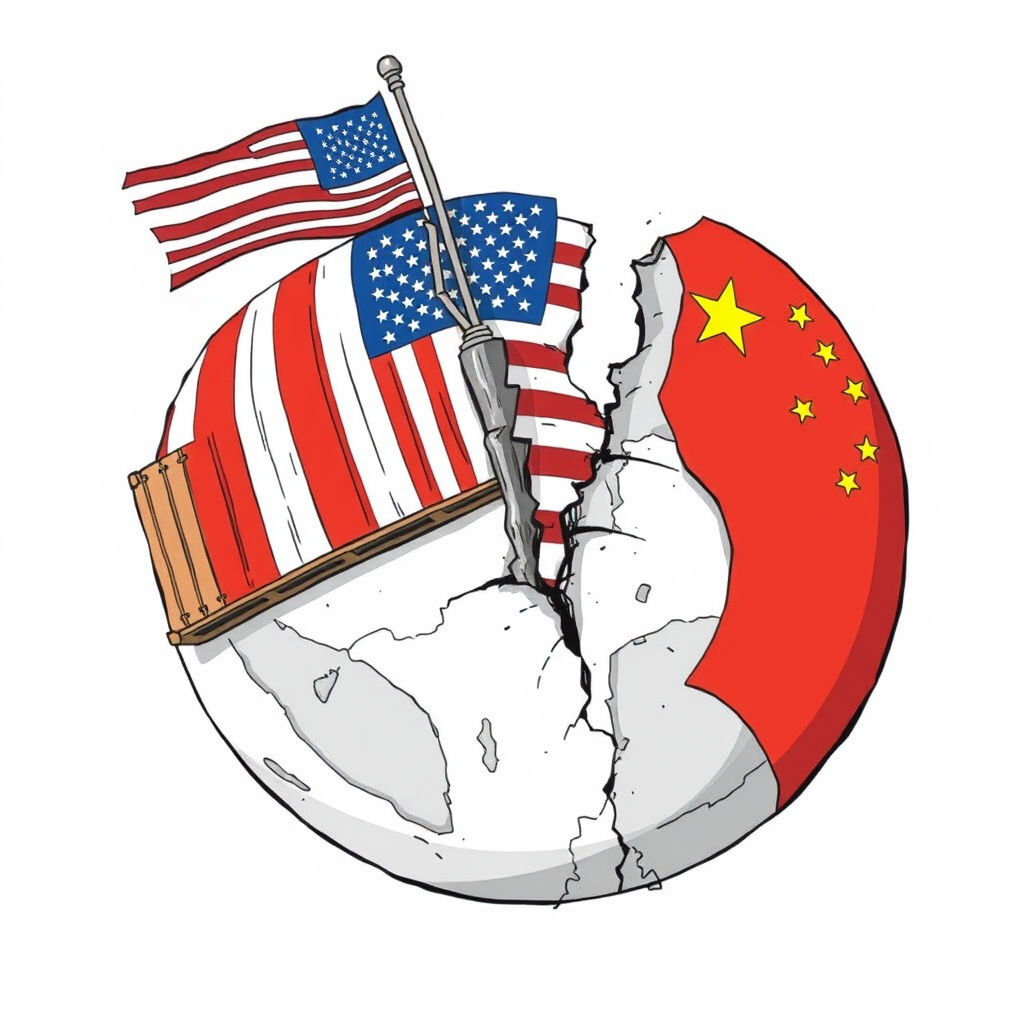China Strikes Back: Trump's Tariffs Ignite Trade War

The global trade landscape escalated dramatically this week as the United States and China edged closer to a full-blown trade war. President Donald Trump’s imposition of a staggering 104% tariff on all Chinese imports triggered immediate retaliation from Beijing, solidifying a standoff with potentially far-reaching economic consequences. The initial volley saw Trump announce a 34% tariff, quickly followed by a matching 34% response from China on American products. Washington then escalated further with an additional 50% duty, bringing the cumulative tariff increase to 104% when factoring in previously imposed levies.
Chinese Premier Li Qiang conveyed Beijing’s resolve during a call with European Commission President Ursula Von der Leyen, stating China is prepared to “fully offset” any negative impacts from the tariffs and remains optimistic about sustaining healthy economic growth in 2025. Li characterized the US actions as an example of unilateralism, protectionism, and economic coercion, emphasizing that China’s response is not merely self-defense but a defense of international trade rules. He underscored the importance of openness and cooperation, a sentiment seemingly lost in the current climate.
The escalating tariffs come on the heels of a weekend that saw Trump’s initial 10% tariffs take effect, triggering significant market volatility and raising fears of a global recession. While Trump argues his policies will revitalize American manufacturing by incentivizing companies to relocate, many economists question the feasibility and timeline of such a shift, warning of increased inflation due to higher prices. The President claimed the US is collecting nearly $2 billion daily from tariffs, a figure that doesn’t account for the broader economic costs.
Beyond China, the US actions are prompting retaliatory measures from other nations. Canada announced it will impose tariffs on certain US auto imports, and the European Union, also facing a 20% levy from the US, is preparing its own response, potentially including tariffs of up to 25% on American goods like soybeans and motorcycles. French President Emmanuel Macron urged Trump to reconsider, signaling the EU’s willingness to retaliate if necessary.
The Trump administration claims to be pursuing “tailored deals” with trading partners, prioritizing allies like Japan and South Korea, and citing offers from countries like Argentina, Vietnam, and Israel to reduce their tariffs. However, the President has shown no indication of pausing his aggressive trade stance.
This escalating trade war presents a significant risk to the global economy. While the desire to address trade imbalances and protect domestic industries is understandable, resorting to blanket tariffs is a blunt instrument with potentially devastating consequences. The resulting uncertainty and disruption to supply chains could stifle economic growth, raise prices for consumers, and ultimately harm all parties involved. A more collaborative and nuanced approach, focused on addressing specific trade concerns through negotiation and dialogue, is urgently needed to de-escalate the situation and prevent a prolonged and damaging trade war. The current trajectory suggests a worrying disregard for the interconnectedness of the global economy and the potential for widespread economic harm.